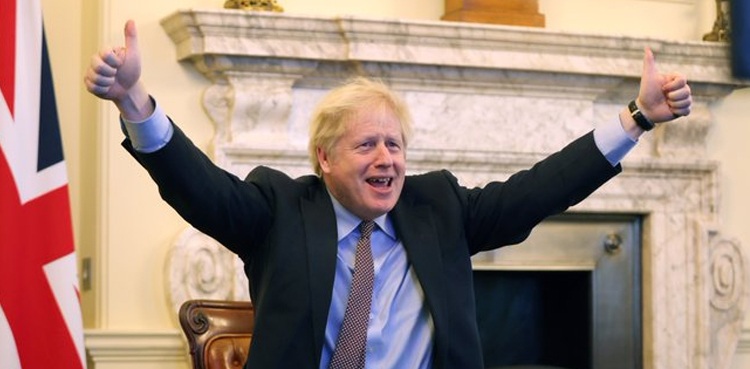
What’s in the UK, EU post-Brexit trade pact

The European Union and Britain on Saturday published the full text of their post-Brexit trade deal, detailing areas both sides fiercely wrangled over for months.
The 1,246-page document notably sets out the fine print on how disputes over trade will be addressed and on the politically sensitive issue of fishing rights.
The pact, agreed on Thursday, is to be ratified by the UK parliament next week and will come into force provisionally in the EU pending a vote by the European Parliament expected next month.
Its replaces a transitional trade arrangement Britain has with the EU which comes to an end next Thursday.
Tariffs
The deal avoids tariffs or quotas on almost all goods produced in the UK and EU moving between the two sides.
British exports must comply with EU health and safety standards and conformity rules, and there are strict rules governing products made with parts originating outside the EU or UK.
Disputes
The UK refused any role for the EU’s European Court of Justice, so disputes will be addressed by the WTO or ad hoc arbitration tribunals made up of three independent legal and trade experts, should consultations fail.
That overall treaty will be overseen by a “Partnership Council” with representatives from both sides.
Various committees under that Council will supervise the different aspects of the treaty. There is also an option for MPs and MEPs to form a “Parliamentary Partnership Assembly”.
Fishing
The thorny issue of access for EU fisherman to Britain’s rich waters was resolved with a compromise: EU boats will gradually relinquish 25 percent of their current quotas during a five-and-a-half year transition period.
After that there will be annual negotiations on the amount of fish EU vessels can take from British waters.
If the UK limits EU access or catches, Brussels can retaliate with tariffs on UK fishing products or other goods — or even suspend much of the trade agreement while keeping fair-competition rules intact.
An arbitration tribunal can be called on to make sure the punishment is proportionate with evidence of the harm done.
Level playing field
The EU insisted on “level playing field” regulations to prevent British firms undercutting European rivals with lower labour, environmental or tax standards, or with unfair subsidises.
The UK will set up an independent authority to decide competition law as a counterpart to that role held by the European Commission, with both upholding common principles.
Temporary subsidies responding to a “national or global economic emergency” — the impact of the coronavirus pandemic for instance — will not be forbidden where “proportionate”.
Courts on each side — including the European Court of Justice, though it is not specifically named in this part of the treaty — will be tasked with deciding trade remedies over unfair subsidies.
Customs
Britain will leave the EU’s customs union along with the single market at the end of the year, meaning that businesses face new red tape for imports and exports across the Channel.
The UK said the agreement allows for the recognition of “trusted trader” schemes that could cut bureaucracy on both sides, but it is yet to be seen how widely this can be applied.
Security
The deal will see the two continue to share DNA, fingerprint and passenger details and see them cooperate through the EU’s Europol.
Brussels says “security cooperation can be suspended in case of violations by the UK of its commitment for continued adherence to the European Convention of Human Rights”.
‘Big changes’
Despite the agreement, both sides warn that “big changes” are coming from January 1 for people and businesses around Europe.
Citizens of the UK and EU will no longer enjoy free movement to live and work between the two.
“The free movement of persons, goods, services and capital between the UK and the EU will end,” Brussels said in a statement when the deal was struck.
The agreement specifies what business travellers are free from needing a visa for short trips. Musicians, artists and performers are left off that list, meaning they might need visas for paid gigs abroad.
HERE IS THE FULL TEXT OF THE BREXIT TRADE DEAL
The post What’s in the UK, EU post-Brexit trade pact appeared first on ARY NEWS.
from International – ARY NEWS https://ift.tt/2M0ClRE



0 Response to "What’s in the UK, EU post-Brexit trade pact"
Post a Comment